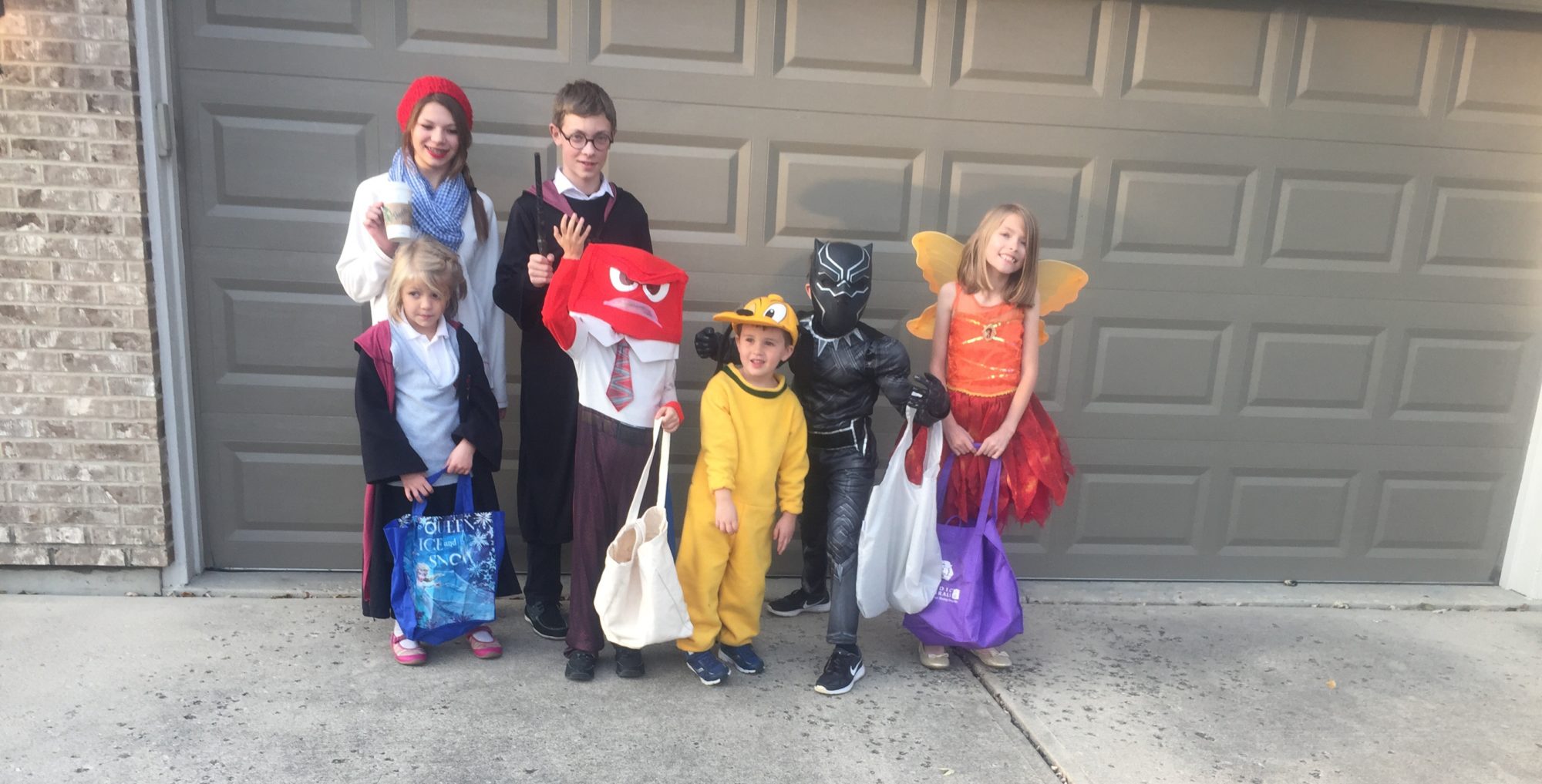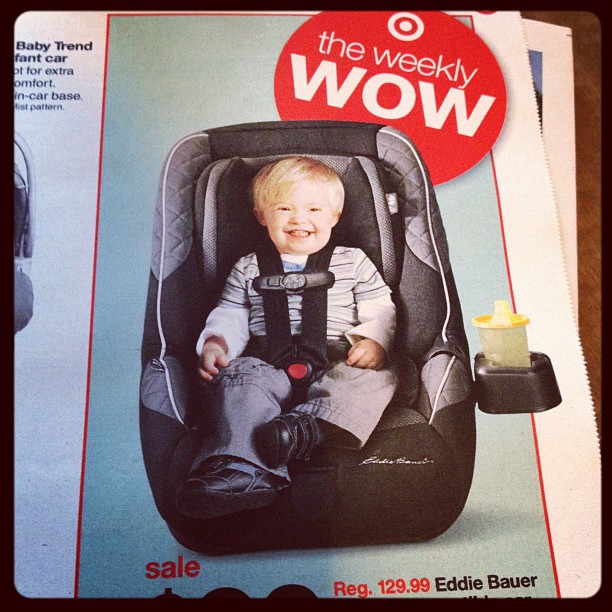Sunday morning I was doing my coffee-and-newspaper ritual thing (hooray for Saturday night church! Best thing since sliced bread.) and I flipped open the Target ad. I do loves me some Target so I always check out what’s on sale so I can see if I have an excuse to visit that big red circle this week. As I flipped through the brightly colored pages, my eyes landed on this:
And I promptly instagrammed, facebooked, and tweeted it because, oh my gosh! Target put a sweet little gorgeous boy with Down Syndrome in its ad. And it filled me with absolute joy.
Now, Target has done this before. And I am certainly not the first person to write about them doing so. But I’d never flipped open my Sunday ad and discovered on my own that they had used a beautiful special-needs child as a model. It took my breath away.
Why? Why did it affect me so profoundly? I had to think about it as I wiped away tears – why did this picture make me so emotional? And then, after awhile, I was able to put it into words. This photo touched me so deeply because this child is a model. And you know what a model is? According to Dictionary.com, it’s “a standard or example for imitation or comparison“. It’s someone’s definition of perfection, of the ideal. It is not “normal” but “extraordinary”. A model represents the best, most beautiful, most picturesque of its kind. Something we should imitate, maybe strive to replicate.
Target is saying, by using this child as a model, “This child is ideal.”
In a world that most often shuns or ignores those with disabilities, this is huge.
I feel I can say with full confidence that this child’s parents already know he is ideal. He is everything they ever hoped for or dreamed of in a child, special needs and all. His parents most likely do not want him to be anything other than who he is. To them, he is perfect.
When we were figuring out Sophie’s developmental delays, there were times I felt that people who were evaluating her wanted her to be someone different than who she was. And I never wanted that. No matter what we did or didn’t find out about her delays, I was okay with Sophie being Sophie. No matter what “accessory package” came with her. She was my girl, she was perfect, she was fearfully and wonderfully made.
The beautiful boy in the Target ad is ideal. He is perfect. He is fearfully and wonderfully made. You and I shouldn’t feel sorry for him or for his parents, because their family is what it was meant to be.
A model family. Because they were made for each other. Fearfully and wonderfully made.

